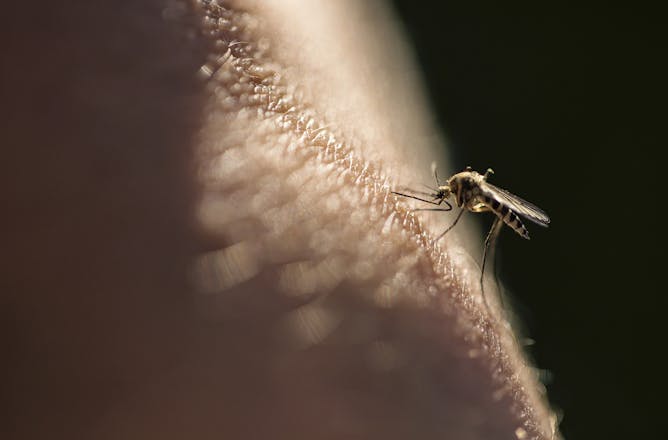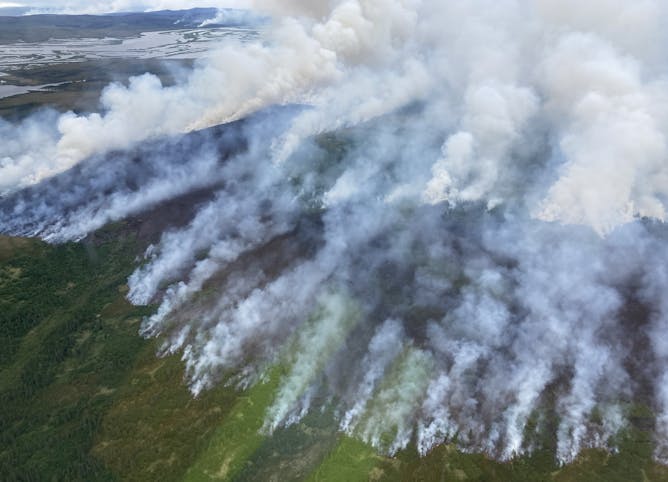|
|
|
|
My colleagues know that I like to go birding, so when we published a story on the perceptual ability to recognize, match or categorize objects – an article that cites bird-watching more than once – my boss said, “You have to read this story.” Written by Vanderbilt University psychologists Isabel Gauthier and Jason Chow, the story describes their evidence that this ability – which they call “o” for object recognition – is very likely one people are born with. They
argue people will be well served by testing for this ability to, for example, decide if they are particularly well suited for a profession in radiology. There’s also a demo they’ve devised to
measure your own o.
One of the great things about having such a robust – and capable – team of science editors is that they’re able to pick intriguing bits of research out of the deluge of science papers published every day. This story, with the headline “Viruses can change your scent to make you more attractive to mosquitoes, new research in mice finds,” fits into that category. University of Connecticut immunologist and infectious disease researcher Penghua Wang explains his
findings from a recent study that found viruses, such as dengue and Zika, were able to change the odor of their hosts by altering the microbiome of the skin. He explains the routes for future research as well as potential treatments to counteract
the change in odor.
It’s wildfire season, and Alaska is already having an active year. Rick Thoman, a climate specialist at the International Arctic Research Center in Fairbanks, explains the factors contributing to this year’s intense fires, and how fires appear to be changing there. “While fire has been natural here for tens of thousands of years, the fire situation has changed. The frequency of million-acre fires in Alaska has doubled since before 1990,” he writes.
Also in this week’s science news:
If there’s a subject you’d like our team of science editors to investigate, please reply to this email.
|

|
Martin La Monica
Director of Editorial Projects and Newsletters
|
|

Some people are inherently better at tasks like reading X-rays.
SDI Productions/E+ via Getty Images
Isabel Gauthier, Vanderbilt University; Jason Chow, Vanderbilt University
To achieve perceptual expertise, you may need more than smarts and hard work. Research suggests there’s a general ability that may help you succeed in jobs that depend on perceptual decisions.
|

Mosquito-borne diseases are estimated to cause over 1 million deaths a year.
mrs/Moment via Getty Images
Penghua Wang, University of Connecticut
Certain viruses like dengue and Zika can make their hosts smell tastier to mosquitoes. Luckily, vitamin A and its derivatives may help combat these odor changes.
|

A large tundra fire burned near St. Mary’s, Alaska, on June 13, 2022.
BLM Alaska Fire Service/Incident Management Team/John Kern
Rick Thoman, University of Alaska Fairbanks
Fires today are hotter and more destructive, thanks in part to a warming climate.
|
|
|
-
W. Larry Kenney, Penn State; Daniel Vecellio, Penn State; Rachel Cottle, Penn State; S. Tony Wolf, Penn State
New research on young, healthy humans found the body begins overheating when exposed to temperatures and humidity lower than previously believed.
-
Robert Glennon, University of Arizona
Stemming the water crisis in the western US will require cities and rural areas to work together to make water use on farms – the largest source of demand – more efficient.
-
Azadeh Yazdan-Shahmorad, University of Washington; Alec Greaves-Tunnell, University of Washington; Julien Bloch, University of Washington
Existing brain connections may influence the effectiveness of neurostimulation. Tailoring treatments to each individual brain could expand the number of conditions brain stimulation can treat.
-
Khatcher O. Margossian, UMass Amherst; Murugappan Muthukumar, UMass Amherst
While pills are more practical than injections or infusions, digestion in the stomach prevents many drugs from being taken orally. Better drug design could change this.
-
Frances Davenport, Colorado State University
Yellowstone’s destructive flooding was a taste of the risks ahead in a warming world, and it’s just one example.
|
|
|
|
|
| |
|
| | |
| |
| |
| |
|
|
|